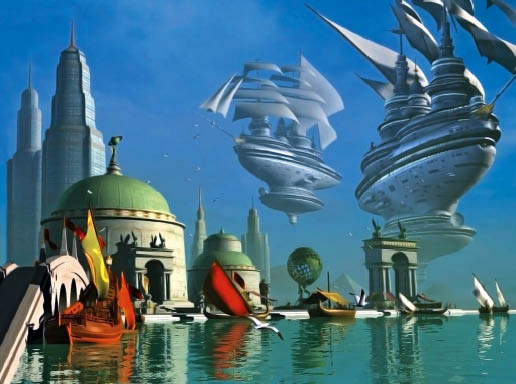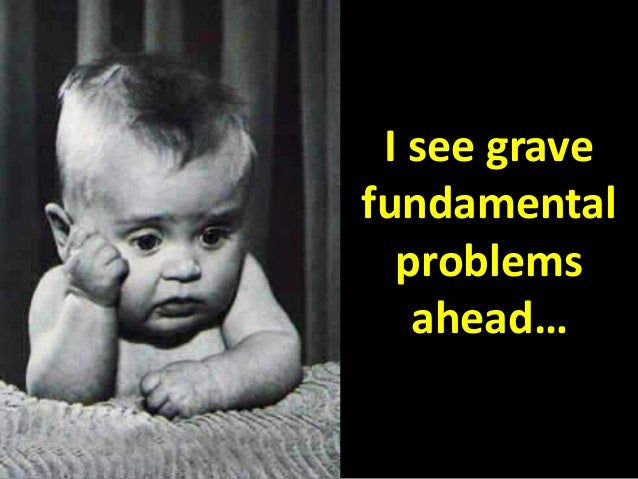The End of the End of e-History
 •
by
•
by Pfenix Quinn

I got up in the mornin’ ’n’ looked under my bed
Looked in the sink, behind the door
Looked in the glove compartment of my car
Couldn’t find ’em . . .
Settle in.. Get a coffee or tea.. This is a really nice story for kids. But it's a bit longish and has a few big words in it.
HAS THE END OF E-HISTORY ENDED?
Before one leaves the game again, before the permanent occupations and the inevitable uprisings begin, before the Alt-South tries to rise again and the One Big Union crushes it, before Antifa destroys the Fa once and for all, all of which will probably pull many of us away from the game for a while, shall we not consider, for a moment anyway, the long trajectory of our beloved socialist freedom movement?
I mean. Why not, right?
And let's' start at a poignant and profound place: by considering the utopian aspect of socialist-freedom.

Originally, the word "utopia" meant "not a place". Then this salty old cracker called Sir Thomas More wrote a book called Utopia. He cleverly juxtaposed "eutopia", which means "a good place", with its e-less no-where homophone, "utopia". As if he intended to say: "Ha! You hapless mortals. Strive all you like for The Good Place. But good luck finding it, chaps."
The ascendancy of the Federalist Party announced the end of history for e-USA.

Not hyperbole. The FP have good reason to be horny. They obviously created an extraordinary military arm. And the Feds perfected a politics too, one that trains an elite cadre to rule perpetually in a precise triangulation with the so-called "Workers" Party, a power-player cabal which is now more or less their bitch.
Federalized neo-Workerist gigantism provides a full-scale foil against the domestic triple-threat of Black-Sheepism, Whalism and Socialist-Freedom. It is a formidable heat shield, forged in the long spectacle of the "Unity" struggle against Brunoism. The tempering of Anti-Brunoist Fear-Mongering has forged an "End of History". It is, admittedly, a kind of perfection of an ideal.
To be clear: I have no argument with Gnilraps, nor with Rainy Sunday, nor with any other of the upstanding Fed players with whom I am happy to share some fleeting degree of e-friendship and respect. After all, we talking about a rather silly game. Rather, my aim today is to develop a critique of the critique of the Federalist-née-"Worker"ist ideology and praxis.
In particular, to press the question of whether there is any alternative to the e-present at all.
The Federalist Ascendancy presents as a world-historical reality that emerged from the final suppression of Brunoism. It seized on and defined the central motive by which competing political visions legitimate themselves. And now, instead of having hope for better future, or expecting an ever-increasing sphere of happiness, or dreaming of any other utopian scheme, we've ended up, at the end of e-time, enveloped in a totalizing frozen fear of a steadily worsening present.
And yet. Despite all that. The atmosphere has changed.

It was December when a principled party of players stood against Dictatorship, just for fun. They didn't want no stinking dicktator ship. They were thrilled to be black-listed from the Forum. That sent a little shock up the spine of the Unity Trip. How did that great Canadian poet put it... "There's a crack in everything. That's how the light gets in."
More recently, a bunch of refuseniks simply walked away from the totalizing Elitist Forum. It wasn't very pretty. There was lots of swearing. And, startlingly, people who troll a lot were trolled in turn. Yes, I know! In a online game where people are anonymously role-playing! Shocking things were said. Shocking, I tell you.
But after exhaling, folks took a look around and saw that the system did not, in fact, collapse. Turns out it is possible to simply... play the game... after all.
And another funny thing has happened in these end-of-history-times. After determinedly occupying the in-game media for weeks on end, choosing to speak directly to the players rather than directing them from afar, while continuing to be full of fun and flaming, funkiness and fidelity, foolishness and frankness, not taking themselves too seriously and by the grace of Harambe, who was shot down for refusing to be zoo-kept, the Socialist Freedom Party woke up one day to find itself, somewhat absurdly, and to its own surprise, as the 2nd largest party in the eUSA.
At long last, those absurdly revisionist Lords of the Realm, the US "Workers" Party, were out-ranked by a gaggle of revolutionary anarko-commie nutbags and newbies from an Uber-Utopian Big Red Tent Party: the SFP. WTF is going on?
Utopian fantasies always carry the danger of turning into plans that must be fulfilled, ideals to be realized. An image of the future becomes a model for the future. A description turns into a prescription.

The state of the e-world forces one to construct a form of desire that is capable of jamming images of a better world into every fracture of play, into each button-push, every vote, into the fake-nations and pretend-wars, right up to the whole never-ending suffering totality of our shared e-banality.
But desire alone leaves much to be desired.
Taking on a solid historical knowledge and honestly embracing critical theory, one finds the need to ask how such desires keep leading to impasses that could be avoided. Perhaps some prophetic prosthesis is available? Is it the memory of Harambe, perhaps, which can transform the desire for socialist-freedom into freedom-socialist desire? Such a desire only deserves to be called freedom-socialist if it can prove, again and again, in every situation of domination and against every compromise, that even more can be desired.
FUTURE CONFLICTS AND A CONFLICTED FUTURE
What is socialist freedom?

Does it mean that everybody receives the same income? That bourgeois-liberal promises of equality are simply cashed out in a materialist sense?
Does it reduce everything to the lowest common denominator, a dour aesthetic that imposes an equality of poverty?
Or maybe it means that everything is owned in common? Hmmm. Does it eliminate class distinctions because all ownership is made redundant, and every citizen is made into an equal shareholder?
Maybe freedom-socialism is truly free trade based on anonymous production, enabled by the abolition of money as we know it?
Or does it simply guarantee a decent chuckle for a day's play. As the saying goes: fair play.
Maybe socialist-freedom means saying goodbye to the alienating consumer goods that dominate players' anxieties, filling us with greed for guns, resources, houses and distracting from what is truly essential in e-life?
Perhaps socialist freedom means that politics recedes in importance and becomes merely the administration of things, just another task.
Or maybe it is super-abundance, luxury high-tech gay space communism, where delicious tofurky sausages drop from the sky just by thinking about it, champagne flows everywhere and telepathic dolphin-ubers drop by, just when you need them to, to give you a fun ride to your friends' communal beach-house across the bay.
Or is socialist-freedom an e-society where conflict is banished - a time of harmony and statis, a heavenly place where nothing ever happens?

Or is the era of socialist-freedom a time when the prehistory of eRepublik, with its moronic mirror of modern real world history, has ended and the true human history of the New World has begun? A time when players consciously make their own history, perhaps, in turn, mirroring the delightful future they have invented on-line back into the "real"?
Is socialist freedom best understood, then, as the beginning of politics? The potential to decide our own fate, to be free from dead labor, economic constraints, and atomized social structures?
Does it mean to appropriate a world that actually belongs to us already? Is freedom-socialism a community that has learned to welcome, rather than to control, the unavailability of the social to all, and to engage in closing such gaps as a form of joyous play?
CRITIQUE OF CRITIQUES, NEGATION OF THE NEGATION
Critique of a critique based on economic circulation

An underlying conception of freedom as a striving to correct inadequate realizations of equality in the sense of freedom from collective coercion and cooperation is, in the end, still a liberal and bourgeois perspective. It is a critique of conventional economy on the basis of defending conventional economy.
Private production leads to continuous competition, with a compulsion to produce as cheaply as possible. This drives wages down and tends to cheapen and demean the overall quality of e-life. It results in a monopoly of the most deadening kinds of play.
To be generous, the traditional market system can logically be read as a guarantor of individual freedom.
However, the fetishizing character of play-commodity production drives a disarticulation of the social aspects of play-production, all the while hiding the fact that the play-market tends to suspend concrete forms of player power and replace them with abstracted power. Commodity production increases and even globalizes dependence on others, while both concretizing and hiding the actual relations of production such that indviduals become powerless to shape them.
While often bringing justifiable attention to the dangers of a totalitarian turn in socialist praxis, a critique of the present that fails to mediate the effects of market-based circulation on all aspects of play will tend to reproduce the hidden social relations that uphold such circulation.
Critique of a critique based on production
A critique of the present based mainly on production is the hallmark of a state-socialist perspective.

Abstracted from its specific historical form, Labor is posited as an ahistorical, anthropologically unique phenomenon endowed with ineluctable, progressive, world-historical powers. Capital is likewise considered a bunch of unproductive folks who do nothing whatsoever except to unfairly appropriate unpaid surplus labor.
The overcoming of the present is understood as a juridical reversal, an expropriation of the owning class by the proletarian class. It is a simplistic vision of removing the non-productive part of society and turning everyone into a productive worker.
In fact, core philistine categories tend to remain relatively untouched in such transformations. This is because Labor is actually a generalized social-play constructed only in the context of the e-capitalist mode of production. This mode of production creates a specific social history of enforcement and discipline, particularly the well-known dichotomy between button-pushing work time and non-button-pushing free time.
This production-centered time-split drives a further distinction between production from reproduction. Which of course is patently illogical at an ontological level, anyway, considering that we commonly refer to the birthing process as "labor". It also tends to gender and dichotomize all aspects of life and play, inventing and reinforcing distinct subjectivities, and creating a mental focus on abstract time that is, ultimately, at odds with natural life. This is why so many people dislike Mondays and construct overblown illusions about Fridays, especially Friday evenings.
The historical moment of labor is ontologically constructed by capitalist production and obeys its laws. A critique based solely on the dominance of this moment will inevitably perpetuate and even reinforce present dichotomies and will fail to revolutionize social relations.
Critique of a critique based on consumption
First it was bohemians celebrating the deliciousness and pleasures of the market-driven life. This morphed into the genius of paying auto workers enough to buy the cars they were producing, which in turn produced one of the most active, yet privileged, of industrial unions. The widespread celebration of hedonism, sexual liberation and, finally, the weaponization of identity politics complete the picture, in our time, in the post-factory era, of the fascinating intersection between revolt and integration that characterizes a critique based on consumption.

Such a critique takes the stand that no criticism of the present should exceed its achievements. The "right to work" becomes "the right to be lazy". All ascetic and ecological concerns are put aside. The radical demands are for full-funding of unemployment benefits, for a universal basic income, and for more free time.
The joyful demand of "luxury for all" raises the profile of less powerful, more impoverished players, but it fails to bring into perspective the specific form of such wealth. Not only does it ignore health and ecology, it tacitly accepts the individualistic monad, the separation of production and reproduction. It mistakes mechanization and technology for emancipation, and thus avoids crucial questions of control, construction and programming.
There is a juvenile quality to this type of critique. It tends to turn players into wee princesses who have only three options to choose from: buy, don't buy, or steal. Money as a commodity lends its possessor control over the labor time of others; that's why it tends to have fetish quality that is typically gendered as masculine.
The addiction to consumption as a sphere of struggle is at odds with full social emancipation; it extends the ideological function of accepting the promise of happiness by means of commodities rather than seeking to transform a social sphere that creates a need to escape -- into "leisure time", into the mall -- and makes the internet such an avenue as well, rather than a tool for the construction of the future.
Beginning the future
So where does this leave us? What kind of e-utopia is envisioned from the vantage point of the socialist-freedom, this place of maybe-never no-place in the present? Is it a solid point to stand on, if one can stand here at all?

In the face of despair, the only responsible standpoint is the attempt to contemplate all the things that present themselves as possibilities for redemption. This is considered an utterly impossible thing, since it is always separated, by at least a hair's breadth, from not only the present, but from the scope of existence.
If the redemptive future negates present suffering, then the future and the idea of the future is always in flux. The negation will never remain the same since that which it negates is always changing. Encrypting socialist freedom as something undisturbed, indivisible, unsullied and suprahistorical can only lead to the errors of critique delineated above.
In the end, or perhaps more accurately, as we leave the end of history and begin the future, given the contradictions inherent in such an undertaking, we return to desire as the point of departure. New modes of knowledge, new modes of human relations, new modes of desire, all require the courage to speak out, to imagine, to create artificial objects, to sketch out a provisional utopia, an image of freedom-socialism that will inflame freedom-socialist desires.
Everything is subject to corruption. The "eternal present" of Federalist hegemony is coming to an end. The most effective protection against an authoritarian reaction to the collapse of bourgeois-liberal norms is not to preserve the status quo at all costs, but to create a different New World.
e-History is open once again -- for suggestions.

Play for each other.


Comments
Kindly enter your suggestions below.
Holy crap that was a lot of words ....lol loved all of them
Self hatred is hilariously real in this country.
o7
Received-SPF: neutral (google.com: 193
The biggest challenge to our future, is the fact that there's nothing historical to base it on.
V!!
good article
The old man on the bench say everything.
o/
You aske😛
"Is socialist-freedom an e-society where conflict is banished - a time of harmony and statis, a heavenly place where nothing ever happens?"
and I answer:
Yes! It's time for harmony, Phil Harmony! Harambe gave and it's came back! Now the history of the liberal-socialist future can begin!
🙂
Just start e-living and the future starts too. 🙂
Interesting
🤔
I still think PQ wrote the best articles...not bad tho,.. 😃